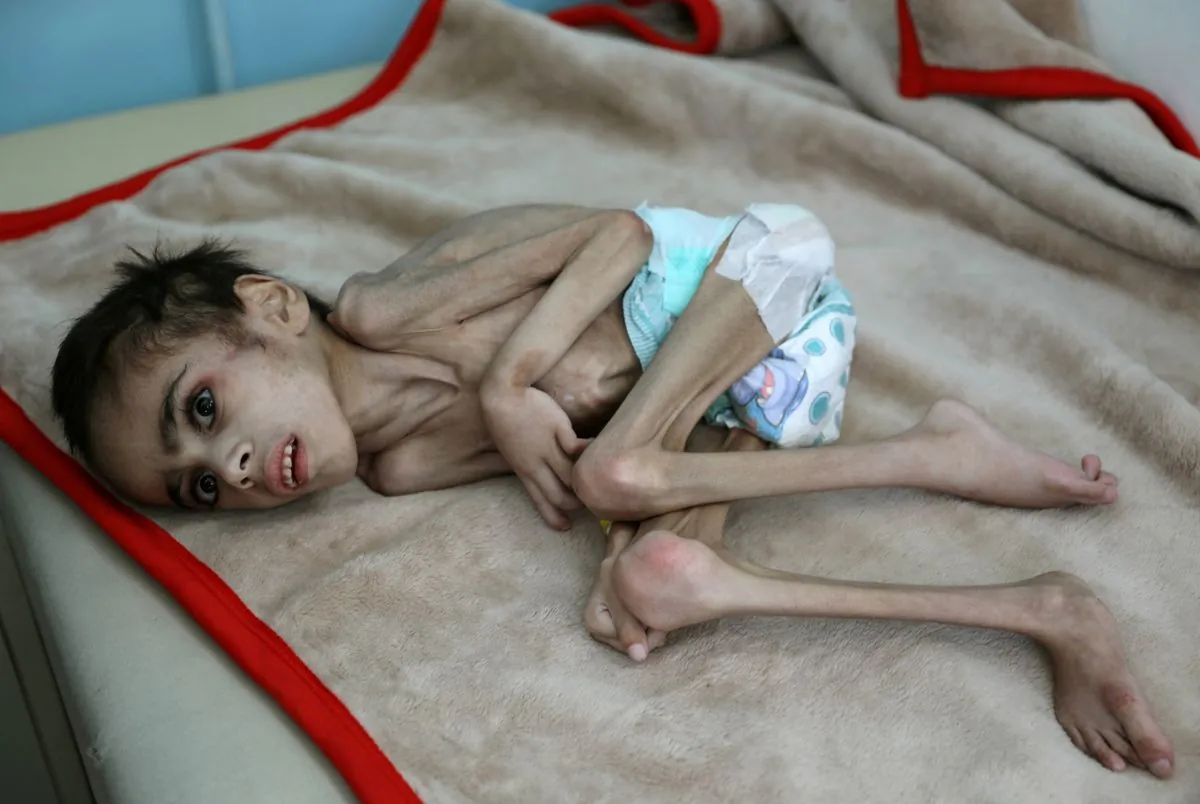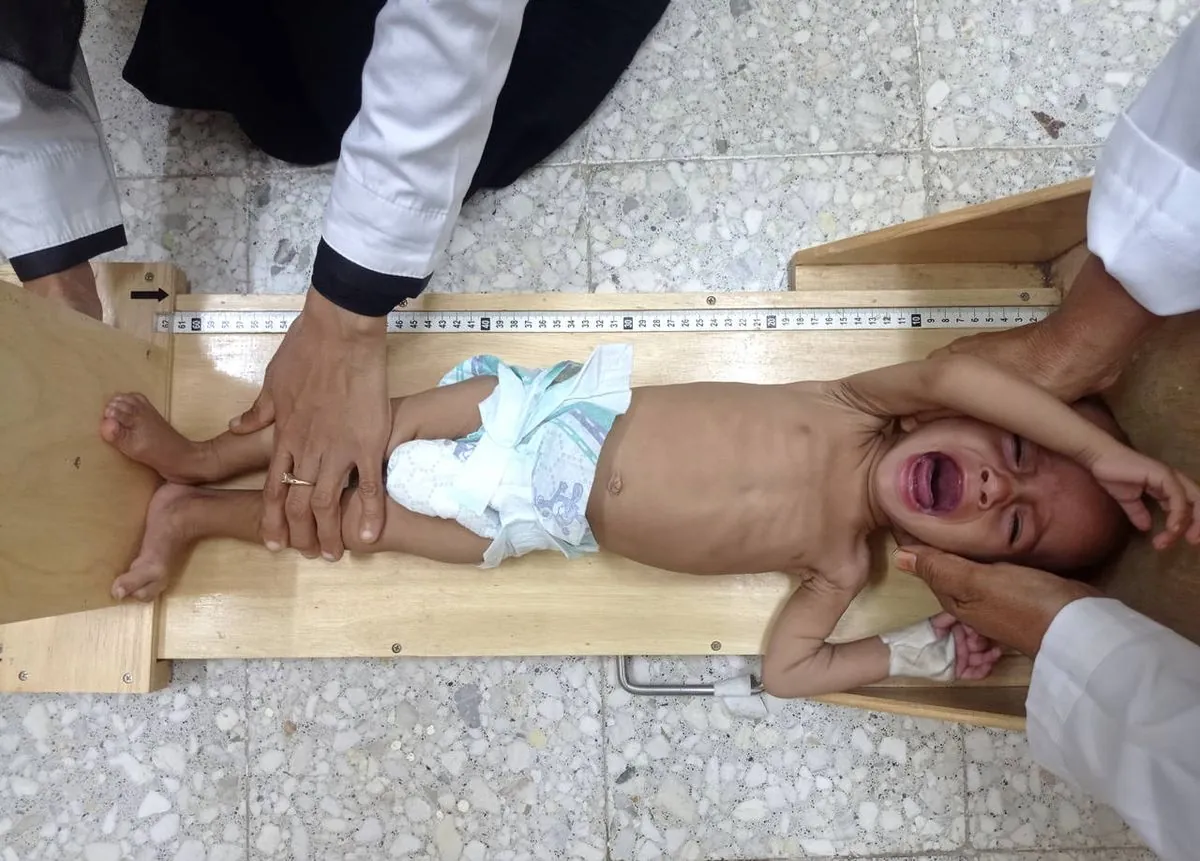Yemen Faces Famine Threat as Child Malnutrition Surges
Four Yemeni districts risk famine as child malnutrition rates spike in government-controlled areas. Experts warn of dire consequences if humanitarian aid remains insufficient amidst ongoing civil war.

The ongoing civil war in Yemen, now in its eleventh year, continues to exacerbate the humanitarian crisis in the poorest Arab nation. Recent reports indicate a looming famine threat in four districts, with child malnutrition rates surging alarmingly in areas under the internationally recognized government's control.
According to the Integrated Food Security Phase Classification (IPC), all 117 districts in government-controlled regions are expected to face "serious" levels of acute malnutrition. Four districts - Mawza and Mocha in Taiz province, and Hays and Khawkhah in Hodeida province - are projected to slip into famine between July and October 2024.
The conflict, which began in 2014 when Iran-backed Houthi rebels seized control of the capital Sanaa, has resulted in one of the world's worst humanitarian crises. As of 2024, approximately 18.2 million people - about 60% of Yemen's population - require humanitarian assistance.

The IPC report reveals a 34% increase in acutely malnourished children compared to the previous year. By the end of 2024, over 18,500 children under 5 are projected to be severely malnourished. Additionally, about 223,000 pregnant and lactating women are expected to face malnutrition.
Peter Hawkins, UNICEF representative to Yemen, emphasized the critical need for increased prevention and treatment efforts to protect vulnerable women and children. The surge in malnutrition is attributed to multiple factors, including cholera and measles outbreaks, high food insecurity, limited access to safe drinking water, economic decline, and inadequate humanitarian aid.
Yemen's situation is further complicated by its heavy reliance on food imports, with about 90% of its food coming from abroad. The conflict has severely damaged the country's infrastructure, including hospitals, leading to a near-collapse of the healthcare system.
Pierre Honnorat, World Food Program director in Yemen, called for urgent action, stating, "These findings should be a wake-up call that lives are at stake." He stressed the critical need to increase support for the most vulnerable populations.
The humanitarian crisis is compounded by the Houthi rebels' recent crackdown on UN agencies and aid groups in areas under their control. Lisa Doughten, a senior UN humanitarian official, reported to the Security Council that these measures have negatively impacted aid operations in Houthi-controlled regions.
As Yemen grapples with this dire situation, the international community faces mounting pressure to address the crisis and prevent further deterioration of conditions in this war-torn nation.
"The environment in these areas is growing more constrained at a time when humanitarians are already struggling to meet the needs of millions of people across the country."


































